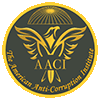Why haven't top business executives faced fraud charges for wrongdoing related to the national fiscal crisis? A senior federal judge questions whether weaknesses in the U.S. prosecutorial system could be to blame.
While not concluding that frauds definitely sparked the crisis, New York District Court Judge Jed Rakoff questioned in an
essay for the
New York Review of Books' Jan. 9 issue whether federal prosecutors gave other cases higher priority because they would take less time and resources to investigate and lead to high-profile trials or guilty pleas.
Rakoff, well-known for questioning the Department of Justice in judicial rulings, also called Department of Justice "too big to jail" concerns irrelevant because the worries referred to companies, not executives. And he theorized prosecutors might have shied away from charging top bankers and other executives with fraud because federal government policies before the crisis encouraged easier mortgage lending and home buying.
While not suggesting that government officials knowingly encouraged or participated in mortgage-related wrongdoing, Rakoff suggested "the government was deeply involved, from beginning to end, in helping create the conditions that could lead to such fraud."
"This would give a prudent prosecutor pause in deciding whether to indict a CEO who might, with some justice, claim that he was only doing what he fairly believed the government wanted him to do," wrote the judge.
Rakoff also questioned what he described as a decades-long trend toward prosecutions of business firms and other institutions rather than the executives who run them. The shift has been "rationalized as part of an attempt to transform 'corporate cultures,'" and often takes the form of deferred prosecution agreements, the judge wrote.
But in many cases, attorneys for a targeted firm assure prosecutors the company wants to cooperate and has launched an internal investigation. Prosecutors in some instances agree to delay seeking charges based on the company's guarantee to share all results from its inquiry.
The typical end result is a a deferred prosecution agreement that includes monetary fines against the firm and plans for stronger internal corporate oversight. Such an outcome pleases resources-strapped prosecutors and the company, wrote Rakoff. "Perhaps the happiest of all are the executives, or former executives, who actually committed the underlying misconduct, for they are left untouched," he wrote.
"I suggest that this is not the best way to proceed," added Rakoff, who argued that successfully prosecuting individuals is a stronger deterrence to future crimes.
The former federal prosecutor and private defense attorney
told CNBC Tuesday he had offered his view as a citizen, not a judge. He joined the federal bench in 1996 after being nominated by President Bill Clinton. One of the most cited cases in which Rakoff, 70, challenged the government was his 2011 rejection of the Securities and Exchange Commission's proposed settlement of mortgage-related charges against Citigroup. The deal would have allowed the bank to settle "without either admitting or denying the allegations."
A federal appeals court is weighing the ruling, in which Rakoff concluded "there is an overriding public interest in knowing the truth."
.jpg)






_2.jpg)

